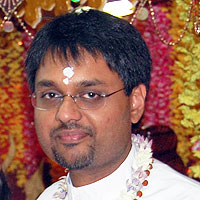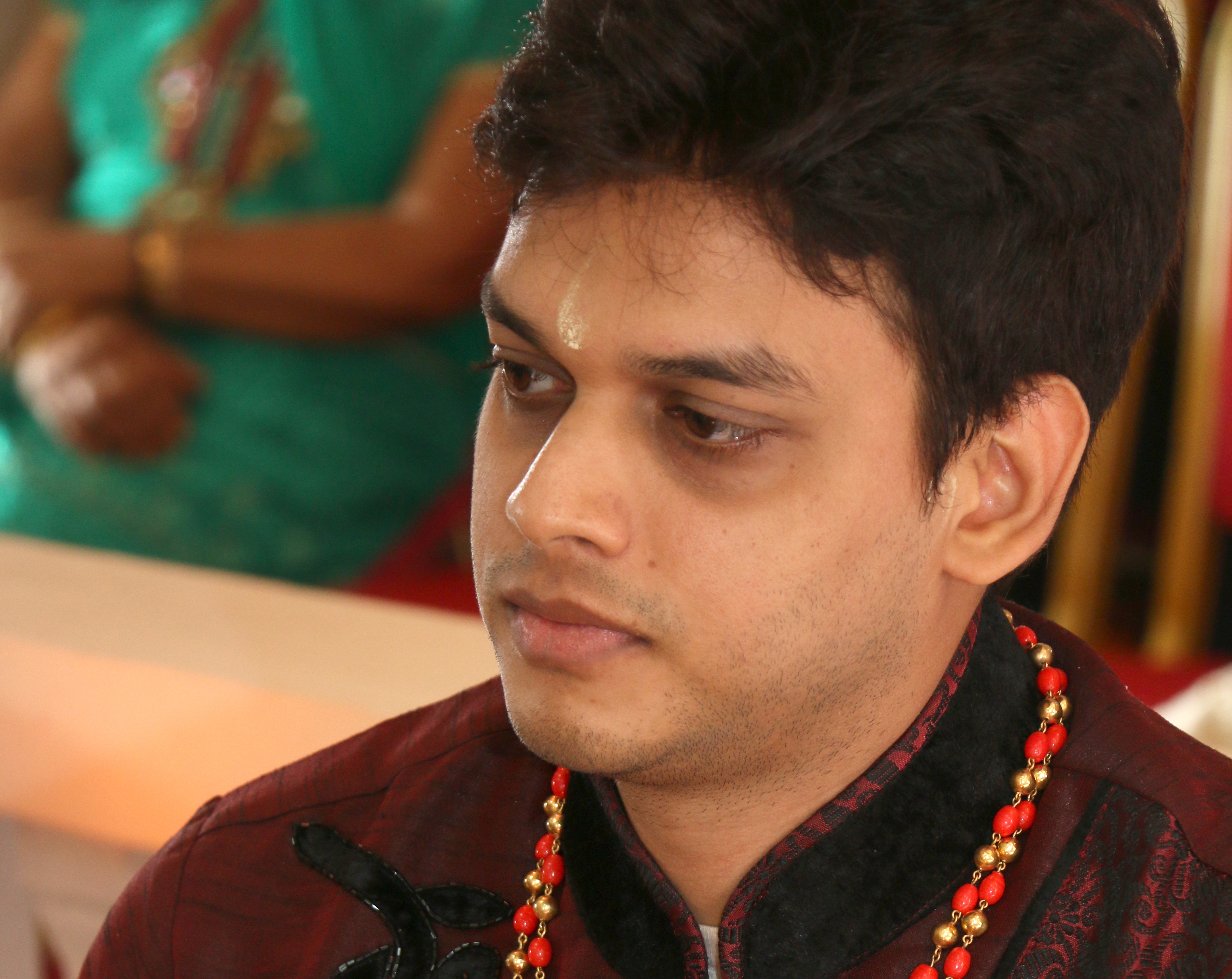From a discourse by Paramacharya Pt. Hardeo Persad
There are more than eight million species on earth, of which the human form is the highest. We are all blessed to be born as human beings. And, as Shree Raam explained, there is no differentiation: whatever the race, colour, shape or size. Every person you see is a blessed person. But, as the saying goes, ‘what I am is God’s gift to me and what I make of myself is my gift to my God’. The question is, what do we make of ourselves to offer to God? Getting a gift is one thing, but making use of that gift is more important.
Tulsidas said that before birth, we all said to the Lord, “Give me a human form, O Lord, and I will worship you.” So, the human being is supposed to perform saadhana, spiritual discipline. It’s not just for our enjoyment or as some say, only to ‘eat, drink and make merry’. Is that all the Divine, Supreme Intelligence put us here for? There has to be a higher objective and it is saadhana. Our highest objective is to attain oneness with the Supreme Lord, to identify with our true nature which is divinity or Aham Brahmasmi. So, through God’s kindness, His mercy and grace, we are born as human beings. But Tulsidas is saying that we tend to forget that vow we made to the Lord: “Oh Lord, give me a human form, I will worship you.”
There are three main stages of life, the infant stage, the youthful stage and old age. Another philosopher, Kabir Das, has given us a wonderful piece of philosophy: when a child is born, the first thing that child does is to cry; he or she opens the lungs and takes a breath. Observe that when the child cries, others around laugh in joy. Kabir says that when I am crying, the world is laughing but when I perform exalted karmas in my life, then I believe I will leave laughing while the others are crying. What is in-between? Karma. We are brought forth into the world as new beings, usually with great joy. Many of us start our lives at an advantage with love and the childhood stage begins. We are usually well protected, showered with love and our needs are taken care of. There is much doolar or ‘pet up’, as we say. So, the childhood stage goes without worries or pressure for many. Is there time to pray? We begin our life’s journey as babies, but even when we decide to pray, often the parents, out of love, say that the child is too small. Tulsidas says that the infant stage passes by without repaying our debt of gratitude. Parents must realise this and encourage rather than discourage the child to pray.
Then, the second stage arrives, the youthful stage. We want jobs so we study and get our qualifications. We want a house and a wife or husband. We may go to our mandir or church or mosque but the mind is on the materialistic. So, in this youthful stage, we are caught up in the rat race of life. We are drinking out of the pitcher of materialism. Even when we pray, it is not really to seek God, it is to ask Him or beg Him, “Lord, give me this or that.” In this second stage of life, we still haven’t repaid the Lord with our gratitude.
If the youthful stage has its attendant attractions and distractions, the final stage, old age, arrives with its attendant ills. The senses become debilitated; we can’t see or hear well; arthritis takes over all our joints. Tulsidas says, the body gets debilitated and the senses degenerate. Time is on our side in the
sense that we might be retired, but Tulsidas asks, when we reach this stage, can we really pray or concentrate? This is why the scriptures say, use every moment to find the Lord. We may not be aware of it, but we have made a vow to God when he gave us a human form. We have made a commitment to God.
We must be self motivated and understand what our duties are. If we don’t pursue the divine, then life has absolutely no value. So, the idea is to bring God into our lives. In Ayodhya Kaand of the Raamayan, Bhagwan Shree Raam asked Sage Valmiki. “O holy one, tell me where I should reside.” Valmiki, recognising Shree Raam to be that all-pervading Purush said, “Lord, tell me where you are not and I will tell you where to stay.” Shree Raam couldn’t say. Where is God absent? This is why we say He is the impartial witness. We also have an inner witness in each of us.
Valmiki Muni then said, “Prabhu, I know you are everywhere, in all places, but certain conditions must be in place. If a person practises and maintains these conditions, your divine presence must be felt.” Simply put, Valmiki says, “Oh Lord, in the heart of that individual, where immoral temptation doesn’t exist, where anger, conceit, rivalry, delusion, greed, hate, lust, false pride, deceit, jealousy and attachment or aversion don’t exist, dwell in such a person’s heart.” You see, spirituality can’t exist where there are these impurities. If you want to develop spiritually, you have to overcome such tendencies. Valmiki says that person is one who has a loving relationship with everybody, who serves dispassionately with a spirit of service to humanity.
Devotees, life is like a flower in full bloom. We should give it away, petal, scent and all, to that gardener who brought it into existence; this is the attitude we should have. Such a person should treat unhappiness and happiness, abuse and praises all alike. Do you know why? It is because expectations are the cause of unhappiness. If we are praised, we feel happy. When we are abused, criticised and condemned, we feel depressed. So this attitude has to be changed. It means having equanimity of mind, being unaffected by praise or infamy and speaking lovingly to all with the right intent and attitude. Such a person has an attitude of surrender to God and seeks His protective shelter.
So, attending service at the mandir, praying and making sacrifices are good. They are aimed at removing our negativities. When there is pure love in the heart, God dwells within. As a farmer plucks out the weeds among the seeds he has sown, so too, on a daily basis, each one of us must reflect on ourselves and pluck out the weeds of vice and negativity and allow the seeds of virtue to blossom. Then, and only then, will you feel the true presence of divinity.



